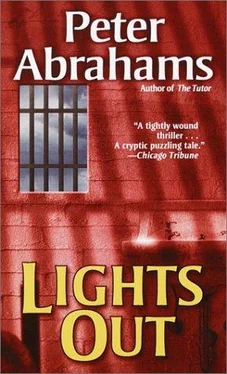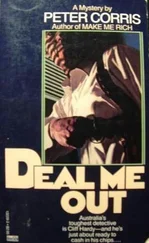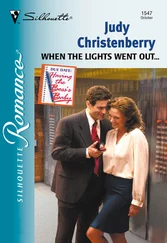Peter Abrahams - Lights Out
Здесь есть возможность читать онлайн «Peter Abrahams - Lights Out» весь текст электронной книги совершенно бесплатно (целиком полную версию без сокращений). В некоторых случаях можно слушать аудио, скачать через торрент в формате fb2 и присутствует краткое содержание. Год выпуска: 2002, ISBN: 2002, Издательство: Fawcett Books, Жанр: Триллер, на английском языке. Описание произведения, (предисловие) а так же отзывы посетителей доступны на портале библиотеки ЛибКат.
- Название:Lights Out
- Автор:
- Издательство:Fawcett Books
- Жанр:
- Год:2002
- ISBN:978-0345445780
- Рейтинг книги:4 / 5. Голосов: 1
-
Избранное:Добавить в избранное
- Отзывы:
-
Ваша оценка:
- 80
- 1
- 2
- 3
- 4
- 5
Lights Out: краткое содержание, описание и аннотация
Предлагаем к чтению аннотацию, описание, краткое содержание или предисловие (зависит от того, что написал сам автор книги «Lights Out»). Если вы не нашли необходимую информацию о книге — напишите в комментариях, мы постараемся отыскать её.
Lights Out — читать онлайн бесплатно полную книгу (весь текст) целиком
Ниже представлен текст книги, разбитый по страницам. Система сохранения места последней прочитанной страницы, позволяет с удобством читать онлайн бесплатно книгу «Lights Out», без необходимости каждый раз заново искать на чём Вы остановились. Поставьте закладку, и сможете в любой момент перейти на страницу, на которой закончили чтение.
Интервал:
Закладка:
“In a postcard or something. That’s when I started writing you. I gave up after a few months. I’m the kind who carries a torch, but not forever.”
Eddie didn’t say anything. He just stared at her, looking for some sign that she was lying. He saw none.
She misread whatever expression was on his face. “Hey! You really couldn’t expect me to, now could you? I mean, you didn’t even answer my letters.”
“It’s all right,” Eddie said. His legs felt a little stronger now; he stepped back from the counter.
“Whew,” said Mandy. “I thought you were going ballistic there for a second.” She looked him up and down. “How about a drink?” she said. “On me.”
“I’ve got to get going.”
She reached across the counter, touched his forearm. “What’s the rush? You’re on vacation, right?”
They went into an air-conditioned bar overlooking a heart-shaped swimming pool. It had green-glass floats hanging from the ceiling, fishnets and harpoons on the walls, and a neon name glowing over the rows of bottles: “Mongo’s.” Jack’s suggestion, outliving him like the work of some great author.
“Do you own this place?”
Mandy laughed. “Are you kidding? It’s owned by AB Gesselschaft. They bought it from the bank, way back.” A waiter arrived. “What’ll it be?” Mandy said. “Cecil makes the best damn planter’s punch in the Bahamas.”
Two planter’s punches arrived, in tall frosted glasses with pineapple wedges stuck on the rims. Mandy raised her glass. “To old times,” she said, taking a big drink.
Eddie drank too; the glass trembled in his hand. It was too bitter.
“We were so young,” Mandy said. “And what a place. Undeveloped then, but still. Irrestistible, I guess. At least, I couldn’t resist it.”
“When did you come back?”
“After the bank took over. I kind of drifted down. It was closed, but they needed someone who knew the history. When the Germans took over I stuck around, answering the phone, working my way up. Then Farouz arrived.” She took another drink. “Jesus, that’s good. You like?”
Eddie made himself drink some more. She watched him, watched his face, his hand, his throat as the liquid went down. “I’ve got a confession to make,” she said. “Promise you won’t tell a soul?”
Eddie smiled. It was such a childish idea. “Promise,” he said.
Mandy smiled too. “Remember that shed by the old tennis court?”
He nodded.
“I still think about it.” Her voice grew husky. “I mean a lot. When I’m in bed, kind of thing.” She tried to meet his gaze boldly, but couldn’t. “With Farouz, I mean. As soon as I start getting all hot, or if I’m not, I just think of that time, and then I do.” Her face, dark and leathery as it was, reddened. She gulped her drink. There was a pause. She leaned toward him. “Are you married?”
“No.”
“Girlfriend?”
“No.”
“I find that hard to believe.” She leaned a little closer. “Do you think about it?” she asked.
She didn’t have to say the shed. He knew. In his cell in F-Block he’d thought about it a lot, not as a hormone booster to get him in the mood for someone else, but just because it was one of the best memories he had. Now he knew he would never think about the shed again, not in the same way. “It’s gone now, isn’t it?”
She leaned back. “What’s gone?”
“The shed.”
She looked at him. Her eyes grew cooler, businesslike. “We’ve got twelve Deco-Turf courts and an outstanding program, if you’d like a lesson sometime.” She glanced at his drink. “You don’t like Cecil’s creation?”
“I do.” He took another sip. “But I’ve got to get going.”
The jitney left from the dock. Eddie sat alone at the back, waiting for the driver to finish saying good-bye to his girlfriend and climb aboard. He kissed her, patted her shoulder, patted her rump, kissed her again, answered a question, then another. Out on the water, a cruiser slowly approached the dock: long, white, multidecked, topped with rotating antennae and satellite dishes; possibly the boat he had flown over. It was much too big to cross the reef. Even as Eddie had the thought, the cruiser swung round, slowed some more, dropped a bow anchor. Eddie could read the name on the stern: El Liberador . Men appeared on deck, began winching down a Boston Whaler.
The driver hopped on the jitney, cranked up his boom box, shot away from the dock. “Cotton Town and all points in between,” he said. “Which is nowhere. Va va voom.”
31
Cotton Town was an hour away. In that hour, the road degenerated to a rutted track, and Western civilization, except for flattened beer cans flashing in the sun, disappeared. Eddie caught a glimpse of one house along the route, standing on a bluff over a quiet bay. It was white with closed shutters, a verandah, and a peace sign painted large on the slanted roof.
“Who lives there?” Eddie asked.
“In the old gin house?” said the driver, turning down his boom box. “Nobody now. The hippies they crash in it when there was hippies.”
“Does anyone own it?”
“Everything be owned,” said the driver, “even the mangoes hanging from the trees.” He glanced at Eddie in his mirror. “You in the market for a house?”
Eddie looked down at the bay, sheltered by two curving arms that ended in sandy points about half a mile apart. He could picture himself swimming back and forth between them. “How much would it cost?”
“The old gin house? Thousands and thousands.”
He had thousands and thousands. Why not? Then he thought of Mandy. Would he want to settle in so close to her? There were other islands, with other bays perfect for swimming.
“That be the problem, man,” said the driver. “Where to get those thousands and thousands.”
The road ended in front of a pink church the size of a two-car garage. “Cotton Town Tabernacle Kirk of Redemption,” read big blue letters on the wall.
“End of the line,” said the driver. “Tipping permitted.”
Eddie gave him five dollars-too much? he didn’t know, not having been in many tipping situations-and got off the jitney, carrying the backpack. The jitney backed, turned, departed. That left Eddie alone with a brown chicken, pecking at the dirt outside the open door of the church.
Music came through the doorway, one of those familiar pieces that appear on classical-highlight records not sold in stores. Eddie went inside.
A little girl with a bow in her hair sat at an upright piano, her back to the door, her eyes on the sheet music. She sensed his presence; her hands flew off the yellowed keys and her head snapped around.
“I didn’t mean to interrupt,” Eddie said.
She stared at him.
“I’m looking for a man named JFK.”
“You the doctor?” Her voice was so soft he could barely hear her.
“Just a friend.”
The girl stared at him. It was quiet in the church; he heard something land with a thump outside, a coconut perhaps. Just when he’d decided she wasn’t going to respond, the girl said, “The house after the Fantastic.”
“Where’s that?”
She pointed with her skinny arm.
Eddie went outside, slipped on the backpack, and set off on a path that led beyond the church, in the direction the girl had pointed. He went past an overgrown garden, a half-built cinder-block house with weeds growing through the holes in the blocks, and a lopsided dwelling with an open window through which he saw a woman slumped forward at a table, her head in her arms. He came to an unpainted wooden structure with a sign over the door in big childish letters: “Fantastic Bar and Club.” He heard a man hawking inside, saw a gob of spit fly out a side window.
Читать дальшеИнтервал:
Закладка:
Похожие книги на «Lights Out»
Представляем Вашему вниманию похожие книги на «Lights Out» списком для выбора. Мы отобрали схожую по названию и смыслу литературу в надежде предоставить читателям больше вариантов отыскать новые, интересные, ещё непрочитанные произведения.
Обсуждение, отзывы о книге «Lights Out» и просто собственные мнения читателей. Оставьте ваши комментарии, напишите, что Вы думаете о произведении, его смысле или главных героях. Укажите что конкретно понравилось, а что нет, и почему Вы так считаете.












